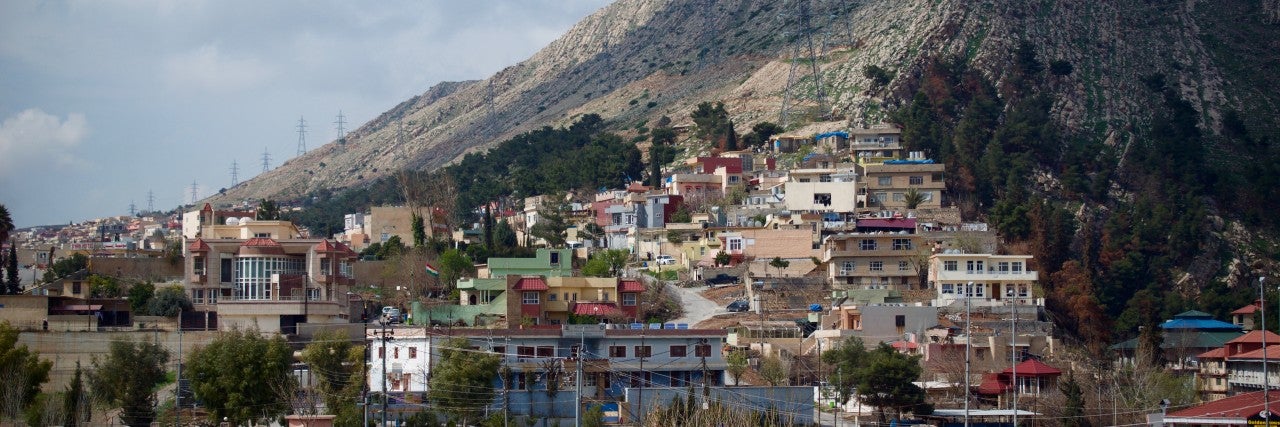October 5, 2017
Eran Lerman
The Kurds are an ancient people. Their presence is mentioned in Xenophon's Anabsis, written in the 4th century BC. Their rights have yet to be recognized. They were passed over in the post-World War I reordering of the former Ottoman realms. They have fought bravely, more than once, against enemies who also were Israel's foes. It should come as no surprise, therefore, that a great majority of Israelis have always harbored a deep sympathy for Kurdish aspirations. The role played by Israel in the Kurds' struggle in Iraq – until they were abandoned to their fate in 1975 by both the Shah's Iran and the U.S. – is a matter of public (but not official) record.
Still, there was an element of surprise in Prime Minister Netanyahu's decision to express open sympathy for the Kurdish Independence referendum in the KRG region of northern Iraq – an act of support that was greeted with appreciation, as some Kurdish demonstrators waved Israeli flags for the world to see. For years, it was Israel's policy to avoid any open expression of support, though Israel's present Minister of Justice, Ayelet Shaked, did declare her strong pro-Kurdish views more than once. To some extent, this caution was driven by the concern that overt Israeli commitment to their cause would actually harm the Kurds and help their enemies tar them with the stain of "Zionist sympathies."
Moreover, the Kurdish leadership in Erbil seemed quite content to take a cautious line, and perhaps harbored a genuine hope of building their status as a fully autonomous, prosperous region within a loosely structured Iraqi state. This was best symbolized by Jalal Talabani, who passed away this week. He served as Iraq's first (non-executive) President after the overthrow of Saddam Hussein's regime. The KRG, indeed, succeeded in turning the post-2003 situation to its advantage, building a relatively strong economy and retaining its own fighting forces, the Peshmerga – in all respects, a state-in-being that did not necessarily feel the urge to turn de facto independence into de jure sovereignty. There was thus no reason for Israel to be more Kurdish than the Kurds themselves. In fact, the judgment was repeatedly made in high places that on this matter, discretion is indeed the better part of both valor and wisdom.
By 2014, however, things began to change. The dramatic rise of the so-called Islamic State (IS), closely followed by the dramatic and shameful collapse of Iraqi military forces in Mosul, broke up the traditional equations of power, and indeed, may have finally torn apart the regional map drawn in San Remo (and earlier, in draft form, by Sykes and Georges-Picot). Moreover, the Kurds, in both Iraq and Syria – with some help from the U.S. and Europe, but mainly due to their own indomitable spirit – rose to the challenge and beat back the "Caliphate" and its vicious troops in battle, most heroically in the small Syrian town of Kobani, but also in the battles that regained Jabal Sinjar in Iraq and released the oppressed Yazidis – whom the (Muslim) Kurds consider to be kith and kin, despite the religious difference – from IS leader Baghdadi's brutal rule. All this gave rise to a new sense among Kurds that the Iraqi state has failed them, in more ways than one; and more significantly, that they have earned in blood the right to go their own way.
Meanwhile, Israel's position in the region has also changed. In the eyes of key Sunni players, it has been increasingly legitimized by the common stand against Iran's ambitions. The same is true of the Kurds themselves. The brutal and overt hostility of Iran towards the Kurdish referendum (which the Islamic Republic fears would stir up similar sentiments in "Eastern Kurdistan" in Iran's northwestern corner) means that key Arab countries, for whom the struggle with Iran is paramount, are at least ambivalent about Kurdish aspirations. It therefore became easier for Israel's Prime Minister to assert quite openly Israeli preferences in regional affairs, without stirring up a storm of Arab protest.
The implications of Israel's supportive stance thus became much less dangerous for the Kurds, who did not hesitate to express their gratitude. What they hope for, with some reason, is that Israel's stance will now resonate in Washington, and over time may help them break down the residual prejudice against Kurdish independence that still informs U.S. official policy (in the vain hope that this cold shoulder toward the KRG would help mobilize Iraqi Sunnis against IS; and in apparent deference to Turkish sensitivities). Again and again, the Kurds chose to ignore aggressive pressures by Iran and others and keep their channels to Israel open, largely because of the hopes they pinned on Israel's potential help in the American political arena.
This, in turn, led Turkish President Erdogan, who firmly opposed the referendum and seems willing to join hands with Tehran in foiling its implementation, to taunt the Kurds with the claim that no one but Israel supports their bid for independence, and "Israel is not the world." In typically vicious style, Erdogan warned the Kurds that they might forfeit their future, and "walk into fire," if they go ahead. It is precisely this stance, and the growing cooperation between Ankara and Tehran in some military matters, which should lead U.S. policy makers to the conclusion that they need to revise their priorities.
Today's Turkish government is hardly a friend, let alone a reliable ally. Erdogan has eroded Turkey's welcome in NATO, with a dramatic acquisition of Russian ground-to-air missiles. When he toys with an Iranian alliance, his whims should not be indulged.
To the contrary, there can be great benefits – to the U.S. and the West, as well, quite frankly, to Israel – in the presence of an independent balancing force in Kurdistan, ultimately encompassing not only the KRG, but also northeastern Syria, known to the Kurds as Rojava – "the sunset lands" in their west – already controlled by the U.S.-backed SDF (Syrian Democratic Forces), which are largely a reconstituted version of the Kurdish PYD. This would be morally right, reversing a long-lasting historical wrong. This would also be strategically wise. The map of the region already changed when South Sudan was let free of the brutal grip of Khartoum. The innate reluctance to redraw the borders of Iraq, and of what used to be Syria, should not stand in the way of justice and of prudence.
Moreover, it is only from a position of basic amity towards Kurdish aspirations that any real effort can be made to persuade Barzani and the KRG leadership to be generous and flexible when negotiating with the Iraqi government on the vexing question of Kirkuk and the actual outline of Kurdistan's future borders, so as to secure an amicable divorce. This is not beyond the capacity of human design if there is some goodwill on both sides and the only way forward is to proceed from the assumption that Kurdish independence is now a legitimate fact, rather than feed the illusion in Baghdad that this outcome can still be reversed. When Israel and Israel's friends speak in this sense to decision-makers in Washington, this is in fact a contribution to the right ordering of a relationship long torn by mutual hostility.
Eran Lerman is the former deputy for foreign policy and international affairs at the National Security Council in the Israeli Prime Minister's Office. Prior to that, he served as director of AJC Jerusalem.
Image: By Levi Clancy (Own work) [CC BY-SA 4.0 (https://creativecommons.org/licenses/by-sa/4.0)], via Wikimedia Commons


